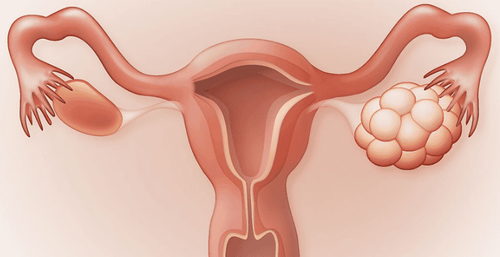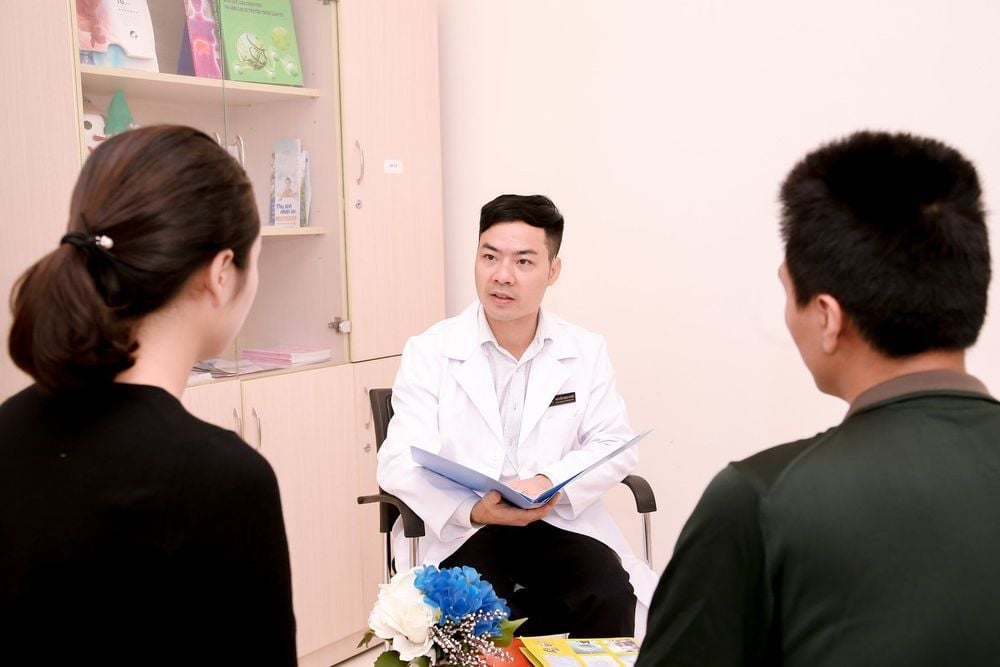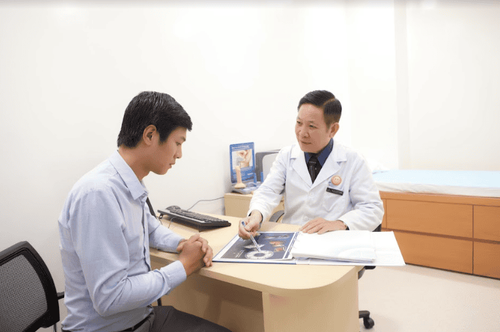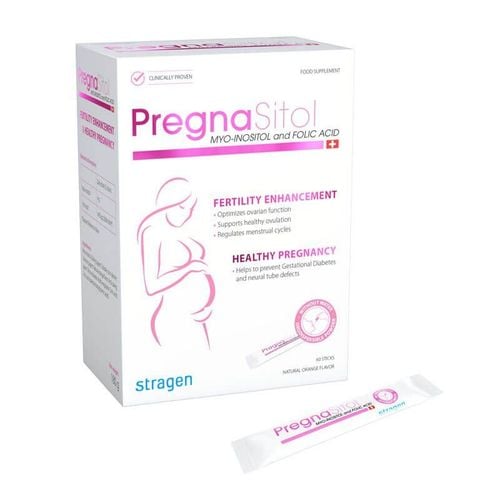This is an automatically translated article.
According to the World Health Organization, secondary infertility occurs in women who have previously given birth or have been pregnant but are subsequently unable to bear children due to the inability to conceive or the inability to become pregnant.
1. What is secondary infertility?
There are two types of infertility as primary and secondary. Primary infertility is described as the inability of a woman to become pregnant, usually after 1 year of trying to conceive or 6 months if a woman is 35 years of age or older. People with secondary infertility have difficulty conceiving after having had at least one previous pregnancy.
Just like primary infertility, secondary infertility can occur due to a problem at any point in the natural reproductive process. Fertility can change even after childbirth. A woman's husband or partner can also change over time. One or more of the following problems may occur during reproduction:
Ovulation (an egg is released) Fertilization of an egg with a sperm The fertilized egg travels to the uterus The egg has been successfully fertilized and made Uterine cysts Both women and men can contribute to infertility.

Vô sinh có thể do nguyên nhân từ cả nam và nữ giới
2. What causes secondary infertility?
Primary and secondary infertility often have the same cause. Some of the most common causes, often associated with secondary infertility, include:
Ovulation disorders Most women with infertility are due to an ovulatory disorder. In clinical practice, 40% of women with infertility do not ovulate continuously and problems with ovulation can be caused by a number of conditions such as:
Polycystic ovary syndrome (PCOS) Ovarian failure primary egg production (POI) Decreased egg count associated with aging Thyroid disease or other endocrine disorders that affect hormone production Lifestyle factors, such as weight, nutrition, and obesity Alcohol or drug use One of the most common causes of female infertility is polycystic ovary syndrome. This condition causes the ovaries or adrenal glands to produce too much hormone that inhibits the ovaries from releasing eggs. In addition, this disease can also cause cysts to grow in the ovaries, which also interfere with the ovulation process. Doctors now have effective treatments for polycystic ovary syndrome that can increase the chances of a successful pregnancy by up to 70%.

Phụ nữ vô sinh hầu hết do hội chứng buồng trứng đa nang
Problems with the uterus or fallopian tubes Structural problems can affect a woman's ability to get pregnant. For example, if there is a blockage in the fallopian tubes, the sperm and the egg cannot meet. The uterus may also have a structural or tissue defect that prevents a fertilized egg from implanting.
Here are some specific conditions that affect the fallopian tubes or uterus, including:
Endometriosis Uterine fibroids or polyps Uterine scarring Abnormalities in the shape of the uterus, such as the uterus Unicornuate uterus In which, endometriosis accounts for 10% of women with secondary infertility. Infertility secondary to endometriosis can occur after a cesarean section or uterine surgery, when uterine cells can be misplaced.
Scars from a cesarean section A cesarean section can leave scarring in the uterus and cause scarring of an old cesarean section, a condition known as an isthmocele. Hernia of the isthmus can lead to inflammation in the uterus and interfere with implantation.
Infections Infections , including sexually transmitted infections , can cause pelvic inflammatory disease . Infection can lead to scarring and blockage of the fallopian tubes. Human papillomavirus (HPV) infection can also affect cervical mucus and reduce fertility.

Nhiễm trùng và nhiễm trùng siêu vi đều có khả năng gây tắc nghẽn ống dẫn trứng
Autoimmune Disorders The relationship between autoimmune disorders and infertility has not been fully explored. In general, autoimmune disorders cause the body to attack healthy tissues, including reproductive tissues.
Autoimmune disorders such as Hashimoto's disease, lupus, and rheumatoid arthritis can affect fertility by causing inflammation in the uterus and placenta. In addition, medications used to treat these disorders can also contribute to infertility.
Age Scientists think age plays a role in fertility. Biologically, fertility peaks in women in their 20s, begins to decline at age 30, and declines dramatically at age 40. This is not to say that successful pregnancies don't occur in women who don't. As mothers age, it just might take longer or be more difficult.
Unexplained Secondary Infertility This is the answer any woman doesn't want to hear, but sometimes doctors can't find a specific reason to diagnose secondary infertility.

Đôi khi vô sinh thứ phát không tìm ra nguyên nhân
Customers can come to the Center for Reproductive Support - Vinmec International General Hospital. This is the leading center in Vietnam, which has developed and applied a comprehensive medical examination and treatment process, combining both gynecology and obstetrics and gynecology to provide the optimal method for each patient's case.
Advantages when customers choose Vinmec fertility center:
Equipped with modern equipment, clean air system according to international standards to ensure lab quality, single cabinet system to optimize quality embryo, improving the success rate for each cycle of artificial insemination. Implement most advanced assisted reproductive techniques in the world: ICSI (injection of sperm into the oocyte cytoplasm); support embryo escape membrane; Reproductive reserve: embryo freezing, sperm freezing, oocyte freezing to help customers take the initiative in giving birth at will, transferring embryos on day 5, minimizing pregnancy; male infertility techniques (PESA, MESA, TEFNA, TESE) Besides advanced reproductive support methods, a team of excellent doctors in the country and the world, with prestige and long-term experience in the field of infertility . Recommended video:
Infertility treatments: Hope for infertile couples
Please dial HOTLINE for more information or register for an appointment HERE. Download MyVinmec app to make appointments faster and to manage your bookings easily.
References: mayoclinic.org, healthline.com












